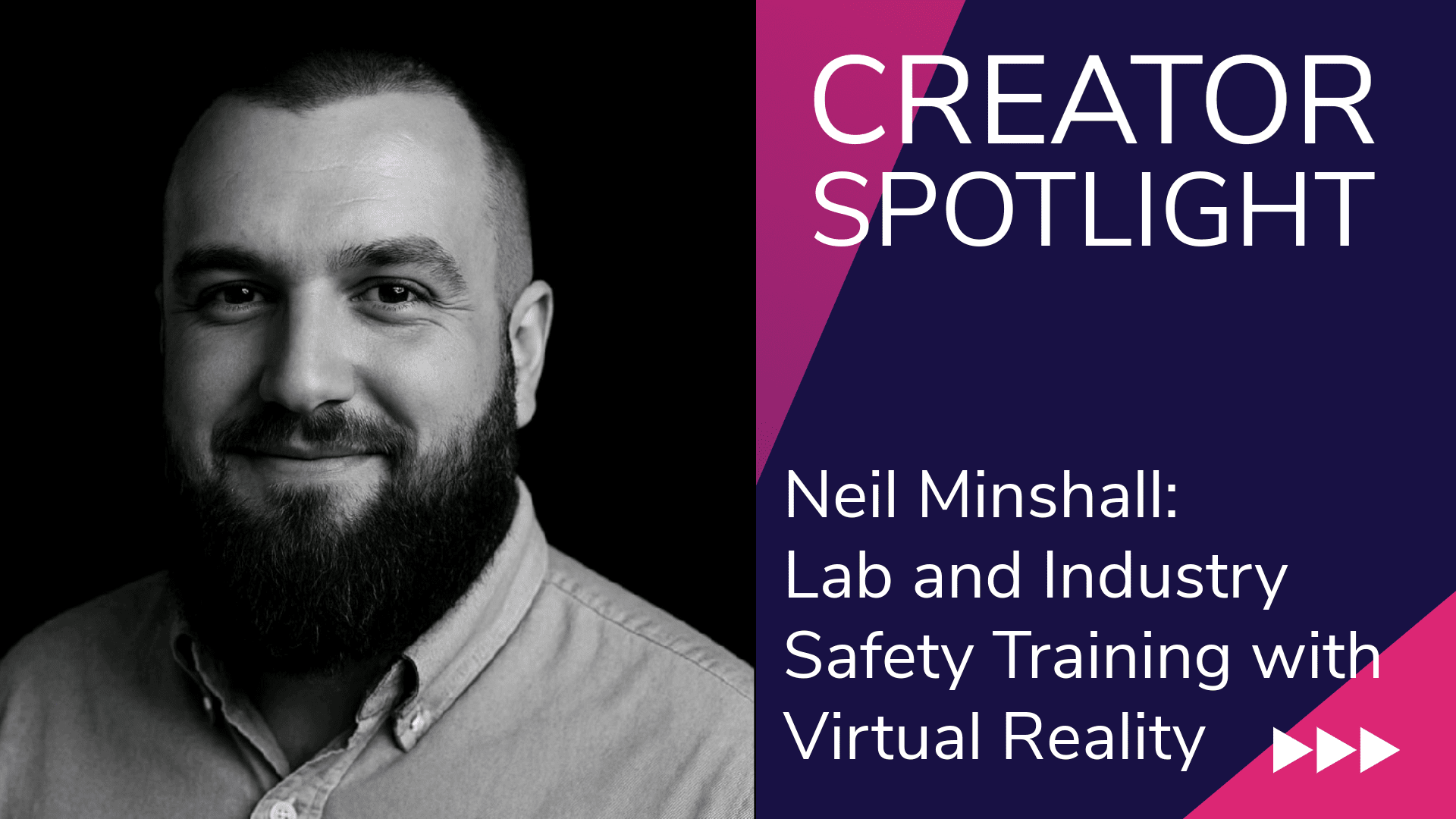
About Neil
Neil Minshall, Specialist Training Instructor at Hydrogen Safe, is helping learners engage with one of the most important emerging energy sources: hydrogen. His work explores how immersive learning can make hydrogen safety training more accessible, practical, and memorable, without the risks of working directly with volatile materials.
The VR was something we were starting to look into, whether we could show that idea and get a bit more of a hands-on experience with testing properties, or doing experiments that we might not be able to do in person or on a remote training course.
Exploring Hydrogen Through VR
At Hydrogen Safe, safety is the first concern. It’s literally in the name. Traditional training can’t always replicate the real-world handling of hydrogen due to obvious risks. VR gives instructors like Neil the opportunity to build simulated lab experiences where learners can interact with the science safely.
Recreating a Classic Experiment
Neil’s first VR prototype, built in Zoe, focused on a process many people encounter in school science classes: electrolysis.
“I started quite simply with my prototype, and it was the idea of being in a lab and carrying out a process called electrolysis—trying to split water using electricity.”
In his prototype, learners can:
- Collect the lab equipment and set it up themselves
- Practice using proper safety gear (PPE)
- Carry out the experiment step by step
- See how a simple process taught in schools translates into the industrial production of hydrogen
By connecting a familiar science lesson with its real-world applications, Neil created a bridge between education and industry.
Building Toward the Future
Neil views his first prototype as a foundation for more advanced modules.
Future iterations could introduce complex safety challenges, variable scenarios, or industry-specific training modules, providing a flexible framework that scales with the learner’s needs.
It would be something I'd be interested in looking to carry on… Let's do a bit more. Let's see where we can add to that, make it more difficult, make it have different scenarios, for example, that could be used in other courses.
Why Create Your Own Lessons?
Rather than relying on pre-packaged VR content, Neil emphasizes the value of creating lessons tailored to his learners:
- Customization: “You could make sure that it was exactly the steps you needed… rather than having to pre-purchase pre-made things that aren’t quite right.”
- Accessibility: Even without coding experience, Neil was able to design a working prototype with Zoe.
- Relevance: Industry-specific examples like hydrogen electrolysis often don’t exist in generic training platforms.
This control over the design ensures learners receive experiences directly aligned with their training objectives.
Advice for Educators Considering VR
Neil encourages instructors to simply get started and test ideas with their learners:
“A lot of the feedback was like, oh, like, this is cool because I feel like I've done it. It's not just a picture that you've seen… those interactions and that hands-on setup really give that extra understanding of how it goes together.”
Instead of replacing traditional teaching, VR adds a powerful layer of immersion and memorability, turning abstract concepts into lived experiences.
Hydrogen plays a key role in the global shift toward sustainable energy, and immersive training methods like VR will be essential in preparing a workforce that can handle it safely. Neil’s work with Zoe shows how accessible, no-code tools can transform complex safety protocols into interactive, hands-on lessons.
Want to Create Your Own Immersive Learning Experiences?
If Neil’s story inspires you, imagine what VR could do in your own field: from chemistry to construction, healthcare to hospitality. With Zoe, you can start small, test ideas quickly, and scale experiences as your needs grow.




